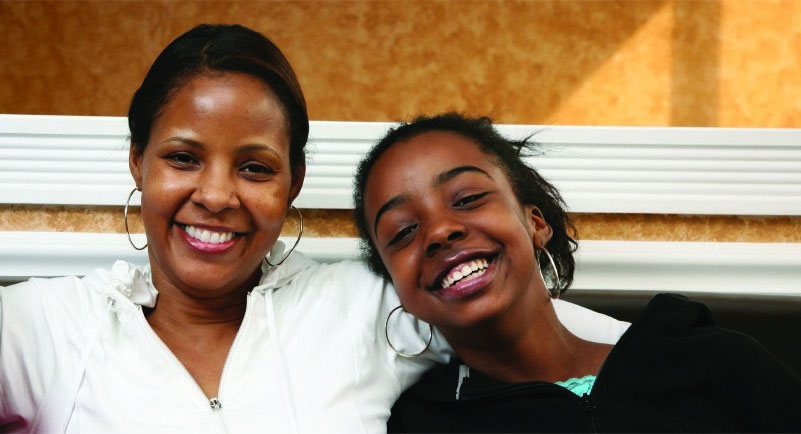
PACER’s Top 10 Transition Tips!
This month’s resources are based on the PACER publication “Ten Tips That May Help Your Child’s Transition to Adulthood.” As you and your youth plan for the future, consider these tips for a successful transition:
Develop self-determination and self-advocacy skills
These skills lay the foundation for transition success. Helping youth speak with understanding about their disability helps empower them to take on adult responsibilities of work, education, and independent living. PACER has several resources on this topic How You Can Help Your Child Learn to Be a Good Self-Advocate; Your IEP Meeting: A Great Place to Practice Self-Advocacy Skills; Sample Self-Advocacy Plan; NEW! My IEP Owner’s Manual for Transition-age Students. Expand social and community support networks
These networks help connect people to their community and provide a wider support system. Many jobs and volunteer experiences can be found through your network of friends, family, and social organizations. Learn more from this quick PACER video Transition Tips for Employment #3: Use Your Personal Networks Build a work resume
Find examples of what youth can include on their first resume to highlight their skills and to demonstrate to employers a strong desire to work. This PACER handout also includes an Action Plan checklist Building a Resume: Tips for Youth with Disabilities Learn “soft” employment skills
In addition to the work skills youth need to develop, they also need to build “soft skills.” You can help your young adult develop these skills by teaching them at home, and then providing opportunities for practice at school and in social situations with these resources from the National Collaborative on Workforce and Disability for Youth, Helping Youth Develop Soft Skills for Job Success: Tips for Parents and Families, and the Department of Labor video curriculum, Skills to Pay the Bills Practice money management skills
Financial education is an important part of transition. Saving, spending, gift giving, and budgeting help youth develop important self-determination skills. Get tips from GreatSchools: Dollars and Sense: Teaching financial skills to teens with learning disabilities. Explore ABLE Accounts and how they provide more choice and control for a beneficiary than special needs trusts. Roadmap to Independence is a tool from the ABLE National Resource Center to help account owners manage their accounts. Connect with adult service providers
It is important to establish connections with adult service providers before graduation whenever possible. Planning ahead is important because each adult provider has different guidelines and requirements and may have a waiting list. Adult service providers include your state’s vocational rehabilitation agency, county services, American Workforce Centers, college or technical school disability service offices, regional agencies, residential services, in-home support agencies, and employment agencies. These PACER Resources can help: Charting a Course for the Future; Resources to Help Plan for Your Child’s Future. Explore housing options
Different types of housing and supervision oversight might be appropriate during different periods of your young adult's life. When evaluating possibilities, it is helpful to make a chart with a list of desired criteria that matches your vision for your young adult’s future. Check out these PACER Resources: Finding Housing for Youth with Disabilities Takes Determination and Creativity; Tips When Considering Housing and Services. Centers for Independent Living can provide housing options assistance. Find your state center here: ILRU Directory of Centers for Independent Living (CILs) and Associations Plan for health care needs
Help your teen build the self-advocacy and health care self-management skills they need with this PACER resource, Transition Health Plan for Youth with Disabilities and Their Families. Find more information by visiting the Health and Transition section of PACER’s National Parent Center on Transition and Employment Learning Center. Visit postsecondary training and education programs
Visiting a college or training program are valuable in helping your student visualize the future, even if, in the age of COVID, some visits are virtual ones. Be sure to make contact with the Disability Services Office. PACER Resources: Visiting College and University Campuses and Teens Succeeding with Technology - Virtual College Tour. For general information on what to ask during a virtual college tour, see College Visits: Virtual Tours, What to Ask. For additional information on preparing for and selecting a postsecondary education program visit the Postsecondary Education section of PACER’s NPCTE Learning Center. For college options for students with intellectual disabilities visit our page on Inclusive Postsecondary Education for Students with Intellectual Disabilities. Prepare for change
No matter how carefully plans are developed, recognize that they are not set in stone. Your youth may want to make changes; be flexible about these changes. Making decisions is important in your youth’s growth, and helps them develop the self-determination and self-advocacy skills that are important to adult life. See Parenting Post-Secondary Students with Disabilities: Becoming the Mentor, Advocate, and Guide Your Young Adult Needs. Or listen to this podcast: Blind Abilities: Letting Them Grow – Transitioning from Youth to Adulthood – A Conversation with Parents Barb Ziemke and Kate Reinicke. Kate shares her experiences from her journey through her kids’ transition from youth into adulthood, including what worked and where she found answers.
Can’t find what you’re looking for? Contact a PACER Transition Specialist by emailing [email protected] or calling us at (952)838-9000.
Was this newsletter helpful? Please forward to a friend or colleague. Did someone else forward it to you? Receive Inspiring Possibilities in your own inbox every month by subscribing here.
Join us on Facebook to stay up to date on the latest family-friendly, transition-related news, information, and resources. We also celebrate the successes of individuals, the broader disability community, and living in an inclusive community.
|